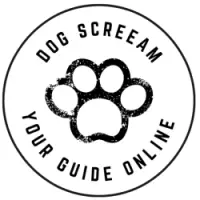Yes, canines can eat cream cheese as long as they do not have any allergies to dairy products. Cream cheese is generally safe for dogs to munch on since it contains carbohydrates (milk sugar) and fats (cream). Some food brands may contain extra ingredients like garlic or onion, but these will only pose an issue if your dog has pre-existing health problems. Other than that, cream cheese is essentially dietary fat with some milk byproducts mixed in.
As mentioned before, certain brands of cream cheese contain extra ingredients like garlic or onion; this might lead to digestive issues when ingested by your dog. Additionally, if your dog is lactose intolerant, it will not digest the sugars found in cream cheese.

Cream cheese is generally safe for dogs when used as a healthy treat every once in a while. It is important to monitor how much food your canine ingests since excessive amounts can lead to health problems like diarrhea and digestive issues. When fed inappropriately in small quantities, cream cheese can provide several benefits for your pet. Dairy products contain many important vitamins and nutrients which help with teeth and bone strength, among other things. Cream cheese also contains calcium which can aid in proper muscle function. Most breeds naturally need calcium for their skeletal system; you should always consult with your veterinarian before giving your dog any new treatment.
What kinds of cheese can you give your dog?
Typically almost all kinds of cheese are fine to feed a dog. All types of cheddar and mozzarella cheeses are perfectly healthy and a great source of calcium and protein for your pup! Pepperjack is the perfect treat if your dog has been good – loaded with spicy peppers to give his metabolism a boost, this type is one of the healthiest you can give him. Make sure that you avoid certain cheeses if your dog has an upset stomach as some types of cheese can cause diarrhea and vomiting. If your dog is lactose intolerant, a few kinds of cheese should be avoided or given in very small quantities – cottage cheese and ricotta cheese.
What about cream cheese?
Cream cheese is a great source of protein for a canine, but it is also high in fat. Dogs love the rich taste of cream cheese so much that they may become obese from eating too much of this type of food. The best age to introduce cream cheese into their diet is after being fully weaned from their mother’s milk. Like most other dairy products, cream cheese can help with indigestion in dogs and reduce the chances of becoming lactose intolerant later in life. Cream cheese is a safe way to wean your puppy from their mother’s milk, but ensure that you do not feed them too much of this during this period.
Can cream cheese make dogs sick?
Cream cheese can cause diarrhea or vomiting if fed to dogs in large quantities or if they are lactose intolerant. If your dog has an upset stomach after eating cream cheese, remove this food immediately and allow him to rest for 24 hours so he can recover fully. However, giving your dog just a little bit of cream cheese now and then should be completely okay as long as you keep an eye on his diet and weight and adjust his serving sizes accordingly.
What are the possible side effects of cream cheese for dogs?
Some brands of cream cheese can lead to digestive issues when ingested by your dog, so it is important to monitor how much is eaten. Cream cheese does not usually cause adverse side effects in most dogs, but there is a chance they could react. Here are ten possible side effects of cream cheese for dogs:
1)Allergic reaction
Allergies in dogs are often difficult to treat, and sometimes the symptoms only show up after extended periods. There are certain symptoms that your dog will display if experiencing an allergic reaction, including hives, facial swelling, skin itching, vomiting, diarrhea. If your dog is displaying any of these symptoms, take them to the vet immediately.
2)Salmonella poisoning
Although rare, cream cheese can carry a very dangerous bacteria called salmonella. This is most commonly found in undercooked eggs and poultry. If your dog has consumed this type of food before giving them any leftovers, make sure that it is thoroughly cooked before feeding them the remains. One way to prevent your dog from ever consuming this type of bacteria is to feed them a commercial diet instead of home cooking or leftover foods.
3)Diarrhea
Cream cheese normally does not cause diarrhea in dogs unless they have lactose intolerance. To find out if your dog does have lactose intolerance, make sure to monitor their bowel movements after feeding them cream cheese. If they have diarrhea, stop giving them cream cheese and call your vet as soon as possible.
4 )Upset stomach
Although not serious, upset stomachs can be quite uncomfortable for dogs. Upset stomachs normally include vomiting, gas, and nausea. Give your dog a little bit of time, and if the symptoms do not go away or get worse, it is best to contact your vet immediately.
5 )Intestinal obstruction
If given too much at once, cream cheese may clog up your dog’s intestines, causing an intestinal blockage. Signs of this condition include loss of appetite, lethargy, vomiting, and dehydration. Take precautions when feeding your dog cream cheese by only giving them a small amount to prevent this problem.
What are the benefits of feeding your dog with cream cheese?
If fed inappropriately in small quantities, cream cheese can provide several benefits for your pet.
1) It’s a great source of calcium
Dogs need calcium to build strong bones and teeth. If you’re planning on getting your canine companion his doggy bag from the table, make sure he’s ingesting enough calcium first by adding cream cheese to his meals.
2) Cream cheese is healthy
Cream cheese is low in fat and has zero cholesterol. We’re sure you know this already, but it’s especially good news for your dog – who can’t eat fatty or fried foods like us.
3) It helps with digestion
Feeding your pet cream cheese daily can make his tummy stronger and healthier. Plus, if he suffers from constipation, cream cheese will help firm up his stool. That way, he’ll be able to poop like a pro in no time! Your dog’s feces should be black and round (like peppercorns), not white and sticky (like silly putty). Feed him some cream cheese while waiting for the perfect poop.
4) The stuff has a calming effect
If your pooch is extremely anxious when you leave the house, his doc might prescribe him meds for separation anxiety. But there’s nothing like natural remedies to keep Fido relaxed in stressful conditions. And guess what? Cream cheese is one of them.
5) Your pet will love it
We’re not talking about its taste (although dogs usually love anything with cream cheese in it!). By feeding your dog his daily dose of dairy, he’ll get used to being fed regularly – which will be useful for when you have guests over or if your animal needs emergency care. They’ll always know where to go.
6) It prevents cancer
It seems bizarre that so much joy can come from something cheesy, but that’s how it is: Cream cheese can prevent cancer if fed regularly. Why? Because it contains conjugated linoleic acid (CLA) – an omega-6 fatty that forms naturally in the digestive system and has been clinically shown to reduce tumor formation.
7) It soothes sore throats
Cream cheese makes the perfect snack when your dog has a sore throat! Go ahead and let him enjoy some cream cheese lollipops! The fats and oils will coat his esophagus nicely, so he won’t choke while swallowing.
8) It helps with arthritis
Many people find that cream cheese reduces the pain of their menstrual cramps. Well, it turns out it works just as well for arthritic dogs, too! The beauty of this cream cheese treatment is that it’s tasteless and not very noticeable.
9) Your pet will look more beautiful
Did you know that dairy intake can make your dog’s coat shiny? If you feed your pooch cream cheese daily, he’ll be less likely to develop these painful crystals. More importantly, though, eating enough calcium can help prevent urinary stones (they’re like kidney stones – but in the case of animals, they form in the bladder).
10) It helps with weight loss
Cream cheese low in fat? Yes, please. While some owners like their pets overweight, obesity comes with all sorts of problems (even if Fido isn’t aware of it). Make sure to feed your dog cream cheese regularly to keep his weight at a healthy level.
Cream cheese is a safe treat for your dog but should not be used as an everyday food source. Dogs can eat cream cheese, but it is best given only occasionally in small portions to avoid obesity. Cheese of any kind is a great source of protein, calcium, and other vitamins that are crucial to the development of your growing dog. Consult your vet before adding cream cheese or any dairy product into your dog’s diet regularly.
